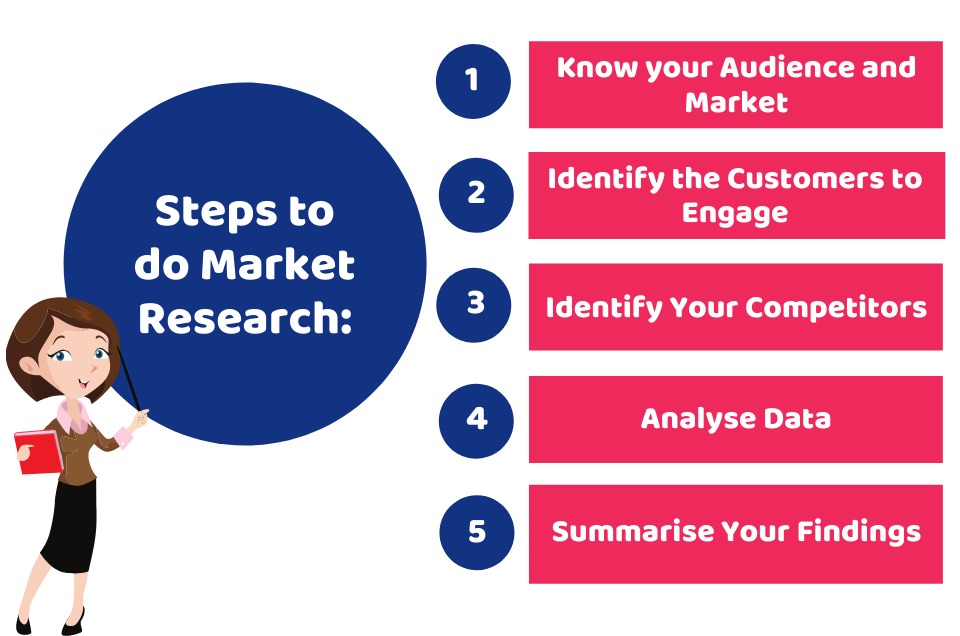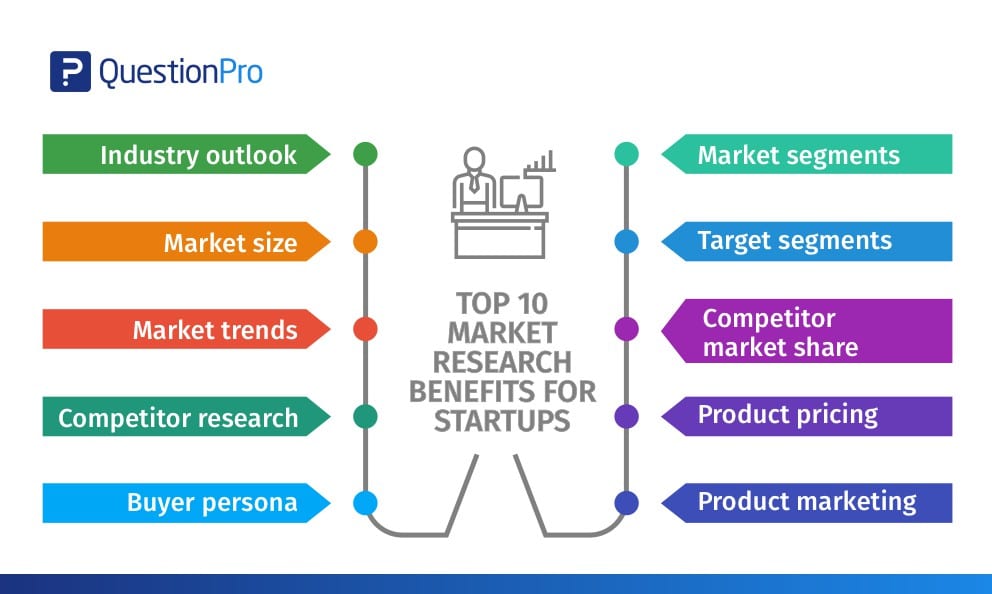How To Do Market Research Before Starting A Business

Venturing into the entrepreneurial world without a compass is akin to sailing uncharted waters. Dreams of successful startups often founder on the rocks of inadequate market understanding. The difference between a thriving business and a costly failure often lies in the thoroughness of the market research conducted beforehand.
At its core, market research is the systematic gathering, analysis, and interpretation of information about a target market, competition, and the overall business environment. This article will serve as a guide to the essential steps aspiring entrepreneurs should undertake to ensure their business ventures are built on solid ground. We'll explore proven strategies for identifying target audiences, analyzing competitors, and validating business ideas before investing significant time and resources.
Defining Your Target Audience
Understanding who your potential customers are is paramount. Begin by creating detailed buyer personas that represent your ideal customer. These personas should include demographics like age, gender, income, education, and location, as well as psychographics like interests, values, and lifestyle.
Leverage surveys and questionnaires to gather direct feedback from potential customers. Online survey platforms such as SurveyMonkey and Google Forms offer cost-effective solutions for reaching a wide audience. Focus groups and interviews provide qualitative insights into customer motivations and pain points.
Segmenting Your Market
Not all customers are created equal. Market segmentation involves dividing your target market into smaller groups based on shared characteristics. Common segmentation variables include demographics, psychographics, geographic location, and behavioral patterns.
By understanding the unique needs and preferences of each segment, you can tailor your marketing efforts and product offerings for maximum impact. Data from sources like the U.S. Census Bureau can be invaluable in understanding demographic trends within specific geographic areas.
Analyzing Your Competition
Identifying your competitors and understanding their strengths and weaknesses is crucial. A thorough competitive analysis helps you identify opportunities to differentiate your business and gain a competitive advantage. Create a spreadsheet to compare key aspects of your competitors' businesses, such as their products or services, pricing, marketing strategies, and customer reviews.
Utilize online tools like SEMrush and Ahrefs to analyze your competitors' online presence. These tools provide insights into their website traffic, search engine rankings, and social media engagement. Pay close attention to customer reviews on platforms like Yelp and Google Reviews to understand what customers like and dislike about your competitors.
SWOT Analysis
A SWOT (Strengths, Weaknesses, Opportunities, and Threats) analysis is a valuable framework for evaluating your competitive landscape. This analysis will allow you to identify your own business's unique strengths and weaknesses, and to pinpoint potential opportunities and threats in the market. It allows you to formulate strategies to capitalize on opportunities, mitigate threats, and leverage your strengths.
The Small Business Administration (SBA) offers resources and guidance on conducting a SWOT analysis for your business. This is a commonly used framework by many consulting firms when they consider the business strategy of their client.
Validating Your Business Idea
Before investing heavily in your business idea, it's essential to validate its viability. One effective approach is to create a Minimum Viable Product (MVP). An MVP is a basic version of your product or service that allows you to test its core functionality and gather feedback from early adopters.
Use landing pages to gauge interest in your product or service. Platforms like Unbounce and Leadpages allow you to quickly create landing pages with compelling calls to action. Offer pre-orders or early access to your product to gauge demand and generate initial revenue. This revenue could be used to scale the MVP as well.
Iterate and Refine
Market research is not a one-time activity. It's an ongoing process of gathering feedback, analyzing data, and adapting your business strategy accordingly. Be prepared to iterate on your product or service based on customer feedback and market trends. This is a key aspect of agile business development.
Continuously monitor your competitors and the overall business environment. Stay informed about industry trends and emerging technologies. Adapt quickly to changing market conditions to maintain a competitive edge. Use Google Trends to monitor interest in new technologies, for example.
Looking Ahead
Thorough market research is the cornerstone of any successful business venture. By taking the time to understand your target audience, analyze your competition, and validate your business idea, you can significantly increase your chances of success. Embrace a data-driven approach and be prepared to adapt your strategy as needed. The landscape of market research tools and tactics is constantly evolving, but the fundamental principle of understanding your market remains timeless.


















